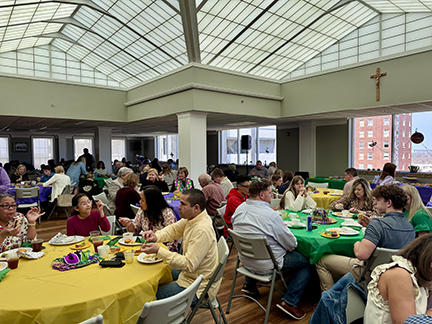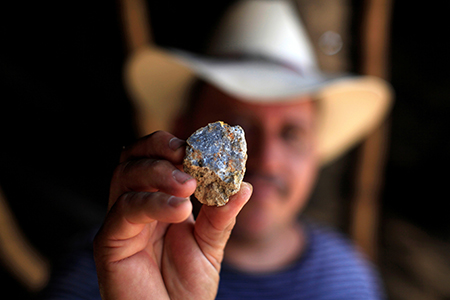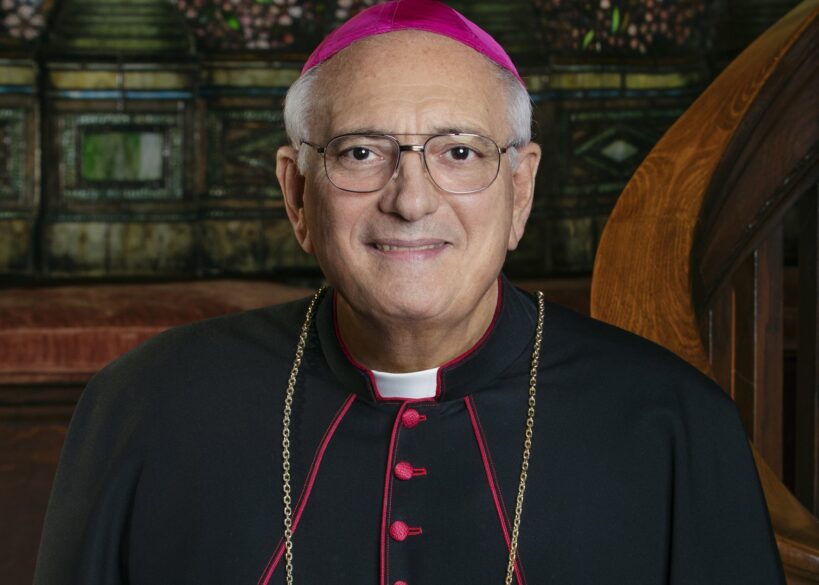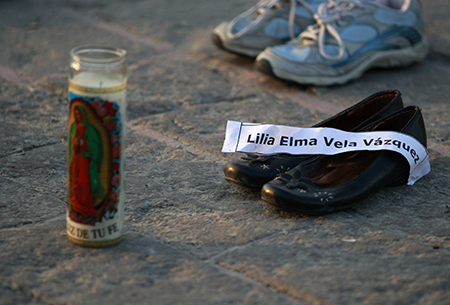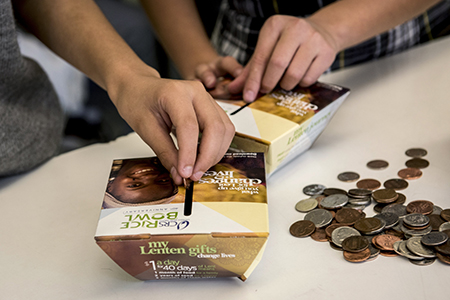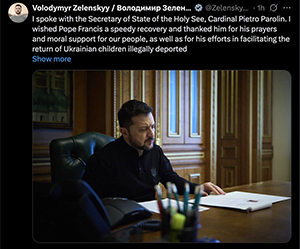
NATION
TOPEKA, Kan. (OSV News) – A Satanic group’s plans for a “black mass” in the Kansas Statehouse on March 28 are sparking widespread outrage among Catholics. The Kansas Catholic Conference condemned the event as a “sacrilegious” display of “anti-Catholic bigotry” and an insult to people of goodwill. Benedictine College in Atchison is dedicating its March weekly Holy Hours, rosaries and Memorare prayers “to the intention of the conversion of those involved in the sacrilegious event and that faith will grow in Kansas.” Democratic Gov. Laura Kelly announced March 12 that she was not planning to stop the event and it could still be held outdoors but not inside the Capitol. Despite this, Michael Stewart, founder of the Kansas-based Satanic Grotto, has vowed to defy the ban. In a March 13 statement, Chuck Weber, executive director of the Kansas Catholic Conference criticized Kelly’s response, saying it “reeks of condescension and a willful ignorance about what is scheduled to happen.”
WASHINGTON (OSV News) – The 2021 American Rescue Plan brought a major victory for families, lifting 3.7 million U.S. children out of poverty by increasing the federal child tax credit and making it fully refundable. For the first time, even families with little or no income could access the credit, benefitting millions, especially in minority communities. The maximum credit was raised to $3,600 for children under 6 and $3,000 for kids aged 6 to 17, with no cap for multiple children. The program had a measurable impact, reducing child poverty to 5.2%. However, this boost expired, and the existing credit of $2,000 per qualifying child is set to halve after 2025. States may offer a lifeline with their own child tax credits – currently, 16 states and the District of Columbia have such programs. As federal support wanes, some states are stepping in with their own solutions, which is “a huge policy shift (and) really an area to watch,” said Megan Curran, policy director at Columbia University’s Center on Poverty and Social Policy, in New York City. There are also indications that child tax credits are a pro-life asset, with Josh McCabe, director of Social Policy at the Niskanen Center in Washington pointing to research supporting the view they “can tilt the scales toward having the child” for some on the margins.
VATICAN
VATICAN CITY (CNS) – As the United States continues to attempt to broker a ceasefire deal between Russia and Ukraine, Ukrainian President Volodymyr Zelenskyy said he spoke with the Vatican secretary of state. In a long post on X March 14, the Ukrainian leader said that during the conversation with Cardinal Pietro Parolin, “I wished Pope Francis a speedy recovery and thanked him for his prayers and moral support for our people, as well as for his efforts in facilitating the return of Ukrainian children illegally deported and displaced by Russia. The Holy See has received a list of Ukrainians being held in Russian prisons and camps. We are counting on support for their release,” the president posted. The Vatican released no information on the call.
ROME (OSV News) – As Pope Francis marks the 12th anniversary of his election while recovering in the hospital, his biographer, Austen Ivereigh, reflected on the pope’s enduring witness. Ivereigh compared Francis’ leadership to that of St. John Paul II, highlighting his dedication to the papacy even in frailty, including the willingness to serve while wheelchair-bound. Despite ongoing health concerns, Francis continues to embody humility and docility, focusing on mission over personal comfort, his biographer highlighted. Ivereigh, author of “The Great Reformer” and “Wounded Shepherd,” recently wrote “First Belong to God,” which guides believers to place Christ at the center of their lives and is based in part on Father Jorge Mario Bergoglio’s past retreats. Addressing criticism of documents such as “Amoris Laetitia” and “Fiducia Supplicans,” Ivereigh underscored Francis’ pastoral approach to complex issues, emphasizing mercy and the importance of walking with those in difficult situations. Looking ahead, he noted Francis’ unique leadership, fostering a culture of discernment and humility within the church, rather than triumphalism.
WORLD
MEXICO CITY (OSV News) – The Mexican bishops’ conference condemned the discovery of an extermination camp operated by the Jalisco New Generation Cartel, calling it “one of the cruelest expressions of evil and human misery.” The camp, found by a group of people searching for their missing relatives in Teuchitlán, included cremation ovens, bone fragments, and over 200 pairs of shoes. The bishops expressed concern that similar sites exist across Mexico, violating the dignity of the human person. The discovery highlights the ongoing crisis of over 120,000 missing persons in the country, a tragedy fueled by cartel violence and government inaction. The bishops praised the families, particularly the “Madres Buscadoras,” for their efforts to uncover the truth despite facing danger and indifference from authorities. They criticized President Claudia Sheinbaum’s claims of a drop in homicides, pointing out a 40% increase in disappearances. At a press conference, Cardinal Francisco Robles Ortega of Guadalajara questioned why local authorities failed to properly inspect the area. Sheinbaum responded to the bishops’ statement March 13 during a press conference, saying, “They don’t have the correct information, the episcopal conference.” She continued, “There’s this idea that there are more disappearances than homicides. That’s not true.”
SAN SALVADOR (OSV News) – Catholic sisters in El Salvador are leading the charge against a new law allowing metal mining in the country, supporting the church’s “Yes to Life, No to Mining” campaign. The law, passed in December 2024, permits exploration and extraction of gold and other minerals like lithium, despite a 2017 ban. The church, inspired by Pope Francis and St. Francis of Assisi, has urged unity in opposing the law, which critics argue threatens the environment and human health. On Feb. 7, Catholic groups, including the Conference of Religious of El Salvador, organized fasting, prayers, and signature collection to present to lawmakers. The bishops, along with local activists, have rallied against mining, citing risks to water sources and public health. President Nayib Bukele supports mining for economic reasons, but Catholics argue it threatens the poor and the environment. Despite threats and political persecution, the church remains resolute in its opposition, calling for a united effort to protect El Salvador’s natural resources. Natividad Chicas Rivera, a Catholic from Osicala, El Salvador, told Global Sisters Report that all Salvadorans will be left with from mining is pollution.


